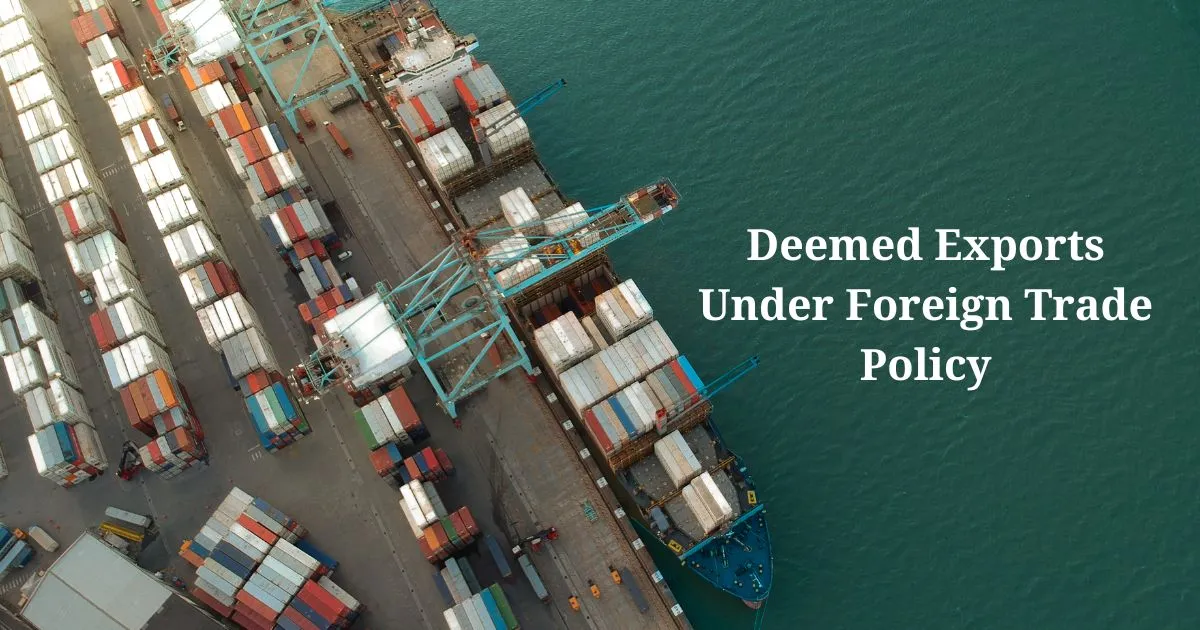


One of the peculiar transactions in the import-export regime is the deemed exports under the Foreign Trade policy. The Indian Government actively promotes exports because it increases the balance of trade and enhances the foreign exchange reserves. To encourage Indians to export out of India, the government has launched various schemes and initiatives. Apart from the actual exports of goods outside India, the government has also specified certain transactions that will be deemed as good as original exports. These transactions shall also be eligible for benefits that the actual export transactions receive. These are known as deemed exports in India. What are deemed exports and what are the benefits of deemed exports? Let’s find out!
Deemed exports specifically relate to the export of goods and are referred to as those transactions that are specified under Section 147 of the Goods and Services Tax Act, 2017. Supplies under deemed exports do not actually leave India and the payment for them can either be received in Indian Rupees or convertible foreign exchange. Through Notification No. 48/2017 CT dated 18-10-2017, the Government has notified the following transactions as the deemed export transactions:
Following are some of the prerequisites of deemed export transactions in India:
While the regular exports are zero-rated supplies, deemed exports are not considered zero-rated exports. Thus, the supplies notified as deemed exports are subject to the levy of taxes. These supplies shall be made on payment of tax and cannot be supplied under the Letter of Undertaking or Bond. But there are certain benefits of deemed export transactions that are similar to regular exports. The government provides a refund of tax paid on the supplies that are regarded as deemed export. This refund can be claimed either by the supplier or recipient. The supplier or the recipient needs to file an application for a refund under deemed export supplies.
If a transaction is considered as deemed export under GST due to supply to STP/HTP/EOU/EHTP, then the following conditions should be adhered to:
Deemed export transactions in India are akin to export transactions in the sense that both are eligible for a refund under the GST law. However, it is important for the supplier to identify whether the supply made by him is a deemed export transaction or not. In case you have any queries in relation to the deemed exports under GST or refund under deemed exports in India, feel free to contact the ASC Group.
























































Leave a Reply
Your email address will not be published. Required fields are marked *